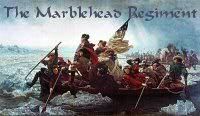Losing Literature
LONDON, England (AP) -- "Romeo, Romeo -- wher4 Rt thou Romeo?"Absolutely horrible! Children do not read as it is. Now we are going to turn beautiful classics into nothing but a few little words or letters? Students ought to pick up Shakespeare or Jane Austen and read their words, not text message language.
It could be the future of Shakespeare.
Dot mobile, a British mobile phone service aimed at students, says it plans to condense classic works of literature into SMS text messages. The company claims the service will be a valuable resource for studying for exams.
Academic purists will be horrified. Hamlet's famous query, "To be or not to be, that is the question," becomes "2b? Nt2b? ???"
John Milton's epic poem "Paradise Lost" begins "devl kikd outa hevn coz jelus of jesus&strts war." ("The devil is kicked out of heaven because he is jealous of Jesus and starts a war.")
Some may dismiss the summaries as cheat notes for the attention-deficit generation, but John Sutherland, a University College London English professor who consulted on the project, said they could act as a useful memory aid.
"The educational opportunities it offers are immense," said Sutherland, who chaired the judging panel for this year's Booker Prize for fiction.
Sutherland said the compressed nature of text messages allowed them to "fillet out the important elements in a plot."
"Take for example the ending to Jane Eyre -- 'MadwyfSetsFyr2Haus.' (Mad wife sets fire to house.) Was ever a climax better compressed?"
But political commentator and author Oliver Kamm said the terse texts were "more than a travesty."
"What you lose with text messaging in literature is what makes literature what it is -- the imagery, the irony, the nuance," he told British Broadcasting Corp. radio.
"What I fear will happen with text versions of Shakespeare is that students will be encouraged not to read the books but to settle for something else, and people don't need excuses not to read books. They don't read enough as it is."
Books planned for the service include Charles Dickens' "Bleak House," whose tale of the interminable legal suit of Jarndyce and Jarndyce is reduced to a few snappy lines, and Jane Austen's "Pride and Prejudice," which describes hunky Mr. Darcy as "fit&loadd" (handsome and wealthy).
 I Remember
I Remember
















































<< Home